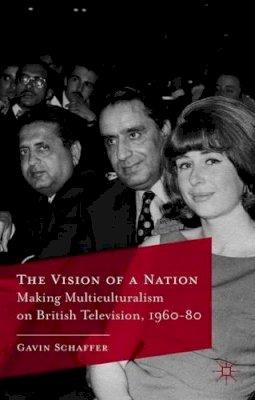
Stock image for illustration purposes only - book cover, edition or condition may vary.
The Vision of a Nation: Making Multiculturalism on British Television, 1960-80
Gavin Schaffer
€ 66.88
FREE Delivery in Ireland
Description for The Vision of a Nation: Making Multiculturalism on British Television, 1960-80
Paperback. Telling the stories behind television's approaches to race relations, multiculturalism and immigration in the 'Golden Age' of British television, the book focuses on the 1960s and 1970s and argues that the makers of television worked tirelessly to shape multiculturalism and undermine racist extremism. Num Pages: 307 pages, biography. BIC Classification: 1DBK; 3JJPK; 3JJPL; APT; HBTB; JFD; JFSL1. Category: (P) Professional & Vocational. Dimension: 217 x 138 x 17. Weight in Grams: 400.
Telling the stories behind television's approaches to race relations, multiculturalism and immigration in the 'Golden Age' of British television, the book focuses on the 1960s and 1970s and argues that the makers of television worked tirelessly to shape multiculturalism and undermine racist extremism.
Telling the stories behind television's approaches to race relations, multiculturalism and immigration in the 'Golden Age' of British television, the book focuses on the 1960s and 1970s and argues that the makers of television worked tirelessly to shape multiculturalism and undermine racist extremism.
Product Details
Publisher
Palgrave Macmillan
Format
Paperback
Publication date
2014
Condition
New
Number of Pages
299
Place of Publication
Basingstoke, United Kingdom
ISBN
9780230292987
SKU
V9780230292987
Shipping Time
Usually ships in 15 to 20 working days
Ref
99-15
About Gavin Schaffer
Gavin Schaffer is Professor of Modern History at the University of Birmingham, UK. His previous books include Racial Science and British Society, 1930-62 (Palgrave Macmillan, 2008).
Reviews for The Vision of a Nation: Making Multiculturalism on British Television, 1960-80
"Schaffer's training and expertise comes through in the carefully constructed chronological narratives in the individual chapters which he writes. ... The book tells us much about the power of television, the attitudes of the elites who controlled TV and the inherent nature of racism in post-war Britain. It would be impossible to teach a course on contemporary Britain without using ... Read more
.png)